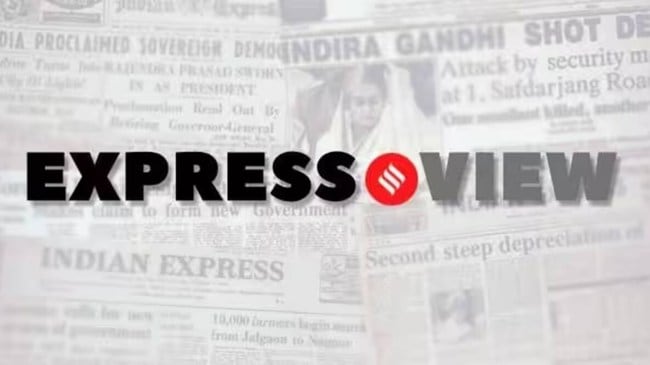Opinion Express View on private hospitals’ treatment of poor patients: An abdication
Private hospitals in Delhi are among the chosen destinations for healthcare seekers from all parts of the country. A large number of these patients are from the poorer sections of society. They should not be forced to seek the Court's intervention to access facilities which are rightfully theirs
 Apollo got land at a symbolic lease amount of Rs 1 per month. But it has used technicalities to contest the clause related to providing free treatment to the poor.
Apollo got land at a symbolic lease amount of Rs 1 per month. But it has used technicalities to contest the clause related to providing free treatment to the poor. Delhi hospitals that have received land from the government on concessional rates are required to provide free services to patients from Economically Weaker Sections (EWS). The percentage of reserved beds and OPD consultations varies according to the terms of the lease agreements. However, the breach of such contracts has been a persistent worry for healthcare planners in the capital. In 2018, the Supreme Court ruled that hospitals failing to comply with their EWS-related mandate could forfeit their lease. The order nudged some hospitals to clean up their act. However, by all accounts, accessing private hospitals remains a challenging proposition for EWS patients. A major Delhi hospital, Indraprastha Apollo, for instance, has been among the prominent defaulters of the EWS clause. In March, the Supreme Court warned that it would direct the All India Institute of Medical Sciences to take over the private hospital if it did not honour its land lease agreement. The deed, which it had signed in 1988 with the then Lt Governor of Delhi, enjoins Apollo to set aside 200 beds for EWS patients. As an investigation by this newspaper shows, the hospital has consistently fallen short of this commitment in the past 12 years.
Apollo got land at a symbolic lease amount of Rs 1 per month. But it has used technicalities to contest the clause related to providing free treatment to the poor. In 2000, a Delhi government committee found that only 20 beds in the hospital were used by EWS patients. Then, in 2003, a committee set up by the Delhi High Court highlighted “discriminatory” methods, including not maintaining proper records, in the treatment of the poor. The HC again censured the hospital six years later and directed it to treat EWS patients “free of any expenses in relation to admission, bed, treatment, surgery, including consumables and medicines”. Apollo contested the verdict in the SC and argued that asking it to pay for consumables and medicines would “wipe out or reduce its dividend”. This paper’s investigation reveals that such claims are grossly ill-founded — in the past 12 years, the occupancy of EWS beds has never been more than a fifth of the stipulated figure.
In its latest order in the Apollo case, on March 24, the Supreme Court has asked the Centre and the Delhi government to set up a joint inspection team to check if the hospital has “grabbed land for private interest”. The two governments should use this experience to put in place procedures that ensure hospitals follow EWS-related rules. That the judiciary has been called to intervene at least five times in the past two decades to ensure compliance with these rules speaks poorly of the government’s monitoring mechanisms. Private hospitals in Delhi are among the chosen destinations for healthcare seekers from all parts of the country. A large number of these patients are from the poorer sections of society. They should not be forced to seek the Court’s intervention to access facilities which are rightfully theirs.






